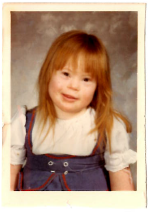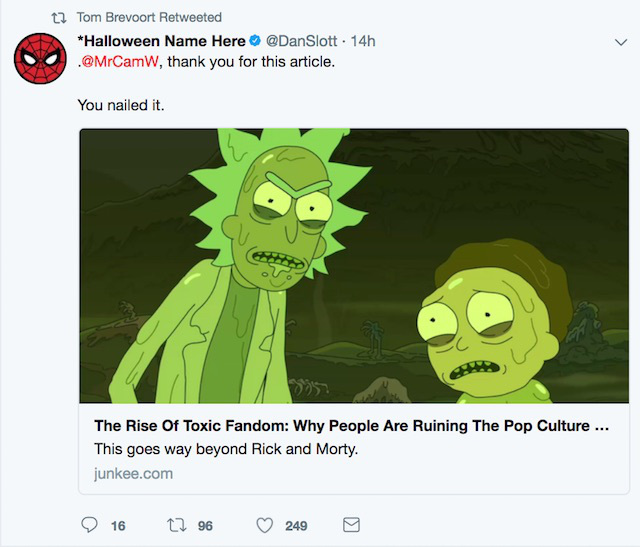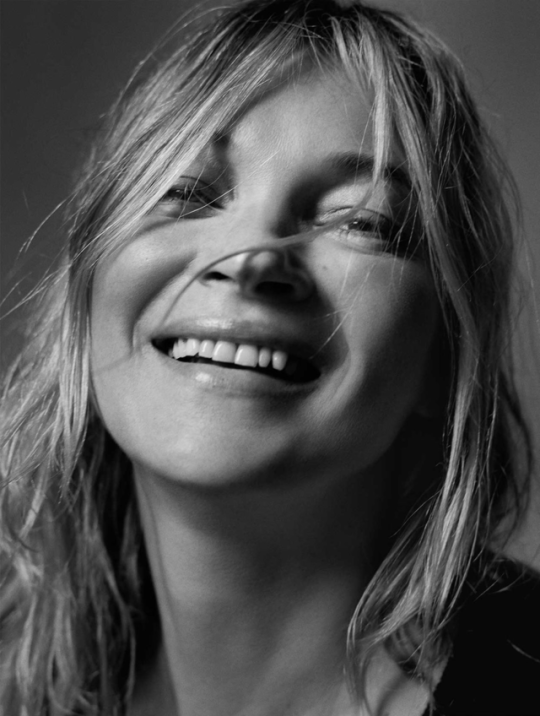 PLEASE READ PART 4 AFTER 3 — OUT OF ORDER.
PLEASE READ PART 4 AFTER 3 — OUT OF ORDER.
The doctor said, “Mrs. Mykel, Amanda is mongoloid.”
I closed my eyes and put my head back against the pillow. I felt a new room open up inside me, a new part of my experiencing self. My identity had changed. I was now the mother of a retarded child. I listened as the doctor droned on about certain medical indications they had checked, because it was important to be sure, right away. He spoke of certain medical problems that would prevent us going home that day. “These children usually don’t have the reflexes other children have, and she may not be able to swallow or sneeze. You may have to force feed her, and she probably won’t be able to nurse.
“It’s common for congenital heart defects to appear in these children during the first few weeks, and there’s no treatment for that. She’ll get respiratory infections very easily, and the Hong Kong flu this winter, for instance, could finish her.”
I looked at him. This was very difficult for him, too. “How severely is she retarded?”
“Mrs. Mykel, mongoloid is mongoloid, and she’s almost certainly mongoloid. During the night we had experts going over her with a fine tooth comb, and there’s really no doubt. She has all the signs, including the simian crease on her palms.” He looked kindly at me. “I’ll be back tonight to talk further with you, and your husband.”
My husband. I reached for the phone. “Come. Come. Come.” I could say no more. I had started crying. The nurse came in. “I understand your eyes are hurting.”
I looked at her, puzzled, and then remembered the great earlier physical pain in my eyes. I shook my head. “Oh, that’s nothing.” The pain had so greatly receded from consciousness as to be insignificant.
The nurse touched my arm. “Go ahead, cry, it’s good for you.” She handed me a Kleenex. “I have a friend who had a child like yours several years ago, and someone sent her a poem in the mail that helped her a lot.”
I looked up. I needed anything. “Could you get it?”
She nodded, and began dialing. As she listened, she wrote, and handed me the poem. It was called “Heaven’s Special Child.”
Several minutes later my husband rushed in. He had been severely frightened by my cryptic tearful call. “Amanda is mongoloid.”
“Is the okay?”
I nodded. “I thought she’d died when you called.” (Later, a friend was to say he may one day wish she had.)
My happy roommate’s joy was a rather overwhelming point to my counterpoint, and I requested a private room. The nurse nodded. “I don’t know if one is available, but I’ll make it available!” She left and shortly returned to wheel me into my own room.
My sister and her husband, puzzled by my failure to call back, had driven to the hospital, and walked in. “Amanda is mongoloid.” My sister endeared herself to me forever by bursting into tears.
“Are you sure? We just got a glimpse of her and she was cute.”
I nodded. Yes.”
And then my baby was brought to me. After our first brief meeting with her after birth, I had no further contact with her as “normal.”
The doctor said her condition was known as Down’s Syndrome, but I didn’t like saying that, or thinking that initially; it was like pretending she wasn’t mongoloid. I received my mongoloid baby in my arms and felt an impulse to protect her from the world. I wanted to “unbirth” her, not to kill her but to protect her in my warm protective environment.
She made small nursing attempts. It was too early for my milk to be down, but I was encouraged by her movements. I felt such an overwhelming need to have her next to me, nestled atop of what had been her resting placed for nine months. I looked at the nurse. “I’d like rooming in. I’d like her to sleep with me.”
The nurse nodded. Two miracles happened that day. First, an unavailable private room materialized for me, and second, hospital rules were stretched so that mother and child slept together within the same hospital bed all night. It was tremendously therapeutic for me, and Amanda seemed quite content with the arrangement..
During those first hours, I struggled inside how to respond to Amanda. My answer came, “she’s my baby.” I knew that caring for her was gambling a big part of myself, but the die was cast. She was my baby.
The doctor returned that night as promised, and spent a half hour providing us with information about mongolism. I was hesitant and frightened, but I had to know. “What are her chances?”
“Ninety to ten.”
In my defensive need to hear the best, I translated those odds to ninety chances of making it. In fact, I recall thinking that those odds weren’t so different than the odds of normal babies. I nodded but did not clarify. He gave me a pediatric appointment sooner than most, to check on any side effects that might show up early.
During the second day, my husband and I grappled with the event. A new baby had come to life, and yet we both felt someone had died. I had a great deal of difficulty processing the event, trying to put it into perspective.
At one point I told myself I should not mention to my friends that Amanda was mongoloid, because it detracted from the greater news she’d been born. A psychologist friend pointed out that my friends would be interested in anything that affected me. We also realized that our expectations for the baby had died. It was the baby of our fantasies who had never really existed this time, who had died.
Taking Amanda, or Mandy, into our lives was a gradual process. I was pretty for almost a month: my pupils greatly dilated from the shock. Knowledge about the condition helped me realize that Mandy was always Mandy, not a girl who had earlier been normal. From the first cell division she was destined to have certain physical and mental parameters. I learned that all the human eggs that a woman has are present at first ovulation, so I figured there was never a chance for the egg that was to be Mandy, to have been fertilized earlier. In a way, she never had a chance. In another way, the only option for her was to be or not to be, and I determined that being, for her, would be a good experience, better than not being.
When my oldest daughter heard that Mandy was retarded, she said, “She’ll always get a lot of attention, without doing anything.”
Those were wise and prophetic words. Our three older children have had to share a large part of their own parenting with Mandy, with natural resentment. The love has outweighed the resentment, however.
CONTINUED : No. 4: TERMINAL HEART DEFECT? (sorry, slightly out of order. Please do read after Part 3
Share this:
- More





